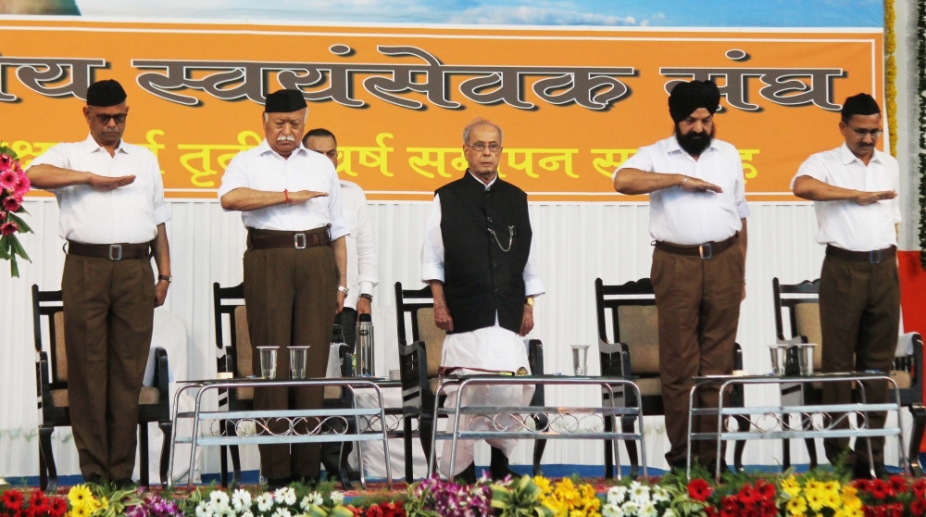Perhaps some day the irony of not knowing ~ or understanding ~ a man the party claims as its own will dawn on the Congress. When it does, and we hope it does, it will realise just how foolish it has been these past few days ~ first, in its reaction to Mr Pranab Mukherjee accepting an invitation to a valedictory function at RSS headquarters in Nagpur and then in the amazing somersault it made to welcome the contents of his speech.
In the first year of his presidency, Mr Mukherjee by his actions and his words made it clear that he would abide by the Constitutional parameters of the highest office in the land, that he would break the shackles of partisan politics and allow himself to be defined only as the nation’s first citizen and not as a party’s nominee to the post.
Advertisement
In his mind at least, he ceased to be a Congressman the day he took oath as President. His conduct in office was exemplary, even statesmanlike, and while he never had the charisma of say a Dr Kalam, Mr Mukherjee’s term delighted Constitutional purists because he almost always rose above politics.
A Congress ~ steeped in a culture that produced Fakhruddin Ali Ahmed, Giani Zail Singh and Pratibha Patil ~ could never get its head around such a notion of the Presidency. As President, Mr Mukherjee was expected to engage with all Indians, including those he might not have agreed with, and did so with aplomb. Certainly, the warmth of the farewell he got from his Prime Minister last year ought to have borne this out.
Once he ceased to be President, Mr Mukherjee became a citizen, not a Congressman, and his former party should have known that nothing else would have been possible for a man they had turned to, at several points in his career as an active politician, for nuanced understanding of the finer points of law and the Constitutional scheme. It took even the Rashtriya Swayamsewak Sangh six years to understand Mr Mukherjee; had realisation dawned two years ago, this invitation may have been extended to a President, and not an ex-President.
To have expected Mr Mukherjee to say anything other than what he did at Nagpur was silly. He spoke his mind about the Constitutional idea of nationhood, pluralism and patriotism, and against communalism and violence. In doing so, he was consistent in holding to beliefs he has aired several times in public life.
The RSS was smart enough to know what he would say, and savvy enough to fathom that even in voicing a different vision of India, Mr Mukherjee would engage in intellectual debate, not rumbustious rhetoric. By his sagacity, the former President has emphasised the need to talk to those one does not agree with, and it is to be hoped that people across the political divide draw the right lessons from his conduct.











